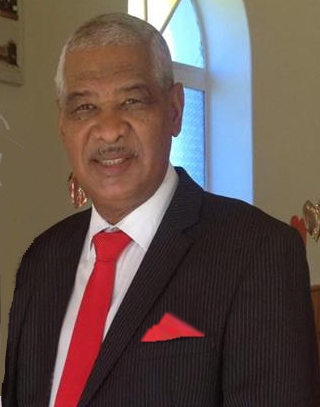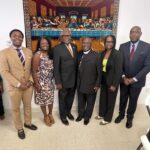A Reflection on South Africa, Post-Zuma
By Rev. Clive Pillay, 15th Episcopal District TCR Field Representative
There is no doubt that the Leading Party is the only way forward for the New Democratic South Africa. It is a challenge to comment on the present situation in South Africa, as the demographics reveal the deep division of thought that exists between members of our Zion. Yet, actions by the Leading Party over the past few years have left much food for thought. There is no doubt that South Africa is in a mess with State Capture, revelations of conniving in State-owned enterprises, Nkandla, and more than 750 charges against emeritus president Zuma. Something had to be done, especially with the African National Congress (ANC) losing more than three million voters in the 2016 municipal voters.
In 2009, South African leaders, representing a variety of perspectives from the public and private sector, gathered in Dinokeng to assess and reflect upon the country’s situation. In what is now known as the Dinokeng Scenarios, they stated “In the 15 years of our democracy, the realities of constructing a new nation have revealed themselves as an entirely grittier and more complex task than we had anticipated. Our legacy challenges us once more with the task of reconstruction. We have not yet vanquished our past; nor have we yet fully constructed our future.”
I applaud South Africa for looking inward in such an open and honest manner. It is only on the foundation of complete trust in transparency and honesty that anyone can move forward. The justice system has not collapsed but the country’s debt grows so deep they are unable to move. The main problem seems to have stemmed from too large a focus on infrastructure building and borrowing unsustainable amounts of money to achieve these goals. The problem presently existing does rest solely on the shoulders of Zuma but we remember the nine times the ANC voted to keep him in power when a motion of no confidence was made in Parliament keeping South Africa in the mess it found itself.
If South Africa can get its act together, not only will she find her own success and satisfaction, she will become an example for the rest of the world. We need a country in which the citizens are engaged and active, where they tell their politicians what they need, and where their politicians listen. All sectors should work together, including government, business, unions, civil society, and businesses funding schools so the businesses can later have the skilled labor they need to succeed.
The ANC’s January 8 statement delivered by its new leader, Cyril Ramaphosa, has led many to start the year with a renewed sense of optimism. Certainly, it must be that the worst of those days are indeed behind us. In fact, this has led to some hoping that the ANC will now reclaim its “glory days” and again be almost completely dominant in our politics. Some hope they could even reclaim its two-thirds majority in the National Assembly. Certainly, its prospects are higher than they have been at any time since Zuma became its leader. It appears to have passed the lowest part of its dip and is now on the up.
Yet, at the same time, much has changed fundamentally in our politics. First, it is no longer true that the ANC has a lock on the voters to whom its message is that it liberated them from apartheid. While most of the economic situation in which most black people still live could, and should, be blamed on apartheid (and our history before that), the ANC is vulnerable to the claim that it has been unable to grow the economy enough to change this terrible inequity. Many people who previously voted in support of the ANC may feel that it no longer deserves their vote for reasons of history only but must now convince them that it will improve their future. It will have to work for their vote.
This may seem relatively easy considering that an urban polyglot, Ramaphosa, is likely to bring back voters who have previously abandoned voting. Ramaphosa, however, is not the entirety of the party, just as Zuma does not embody the entirety of its corruption. Both investigative journalists based in the urban centres, and the enemies they’ve made in their provincial capitals, now have a great interest in uncovering and releasing damaging information. This is likely to keep the party in the headlines for all the wrong reasons. Never mind that, occasionally, an ANC Member of Parliament could find themselves arrested for stock theft. The ANC, the body that claims to be a leader of society, who can unify our people with their disparate histories and cultures, can now not even remember one of its own in a dignified fashion. Unfortunately for the party, these internal pressures are peaking at a time when the pressure from outside is greater than it has ever been since it came into power in 1994.
While, seemingly, the ANC remains united, they differ on what needs to be done to halt the slide in its support. Our prayer remains that President Ramaphosa will be able to lead the ANC in its deliberations and make the collective decisions needed to right the wrongs of the past nine years and bring it back to where it ought to be, with the people of South Africa united.





